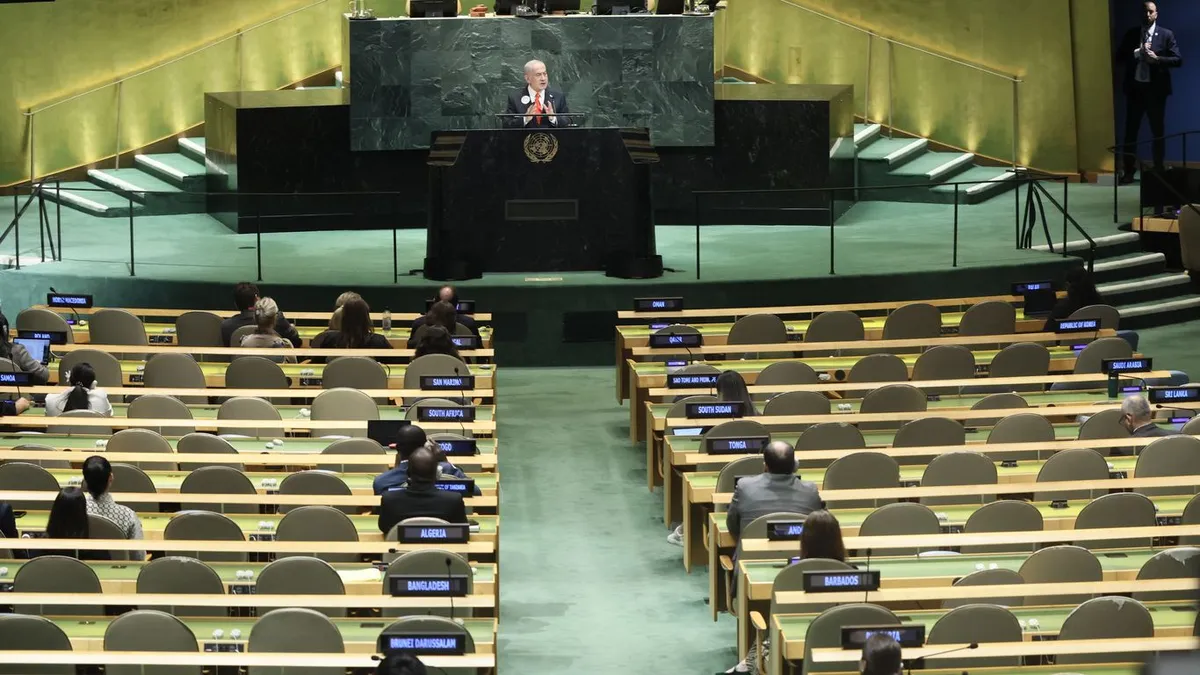
The recent address by Israeli Prime Minister Benjamin Netanyahu at the UN General Assembly was marked by a significant diplomatic incident, as the vast majority of officials and diplomats in the hall chose to walk out in protest. This reaction underscores Israel's deepening international isolation as it continues its military operations in Gaza.
Netanyahu's speech comes at a time when Israel is facing heightened scrutiny on the global stage. With few allies remaining, outside of former President Donald Trump, Netanyahu's position is precarious, particularly as he deals with ongoing charges of war crimes levied by the International Criminal Court (ICC). The walkout during his address serves as a stark reminder of Israel's diplomatic challenges.
During his address, Netanyahu made a bold declaration that Israel intends to “finish the job” in Gaza, emphasizing the urgency of their military efforts. Ahead of his speech, he ordered the Israeli military to deploy loudspeakers around the Gaza Strip, aiming to broadcast his message directly to the Palestinian population. In a further attempt to communicate with Gazans, Netanyahu claimed that Israeli intelligence was live-streaming his speech on mobile phones throughout the region.
In a direct appeal to Hamas, Netanyahu urged the militant group’s leaders to surrender, lay down their weapons, and release hostages held captive. This call highlights the ongoing tensions and the complex humanitarian situation in the region.
The response to Netanyahu's speech was overwhelmingly negative, with nearly all representatives from Arab and Muslim countries walking out of the assembly. Additionally, diplomats from several African nations and a few European countries also chose to leave the hall, further illustrating the widespread disapproval of Israel's actions in Gaza.
Compounding the situation, the Trump administration previously denied a visa to Palestinian President Mahmoud Abbas to attend the UN. However, the General Assembly voted overwhelmingly to allow him to speak remotely, which he did on Thursday. In his speech, Abbas emphasized that the Palestinian people would remain steadfast in Gaza, despite the ongoing suffering they have endured.
The week at the UN began with significant diplomatic gestures, as ten countries, including France, the U.K., and Canada, recognized a Palestinian state. This recognition highlights a growing international support for Palestinian aspirations amid the ongoing conflict.
As the situation evolves, the dynamics of international relations concerning Israel and Palestine remain tense. Notably, Trump has publicly stated that he will not allow Netanyahu to annex the West Bank, indicating potential future challenges for Israeli leadership. The implications of these developments will likely resonate in the international arena as both sides navigate the complexities of the ongoing conflict.